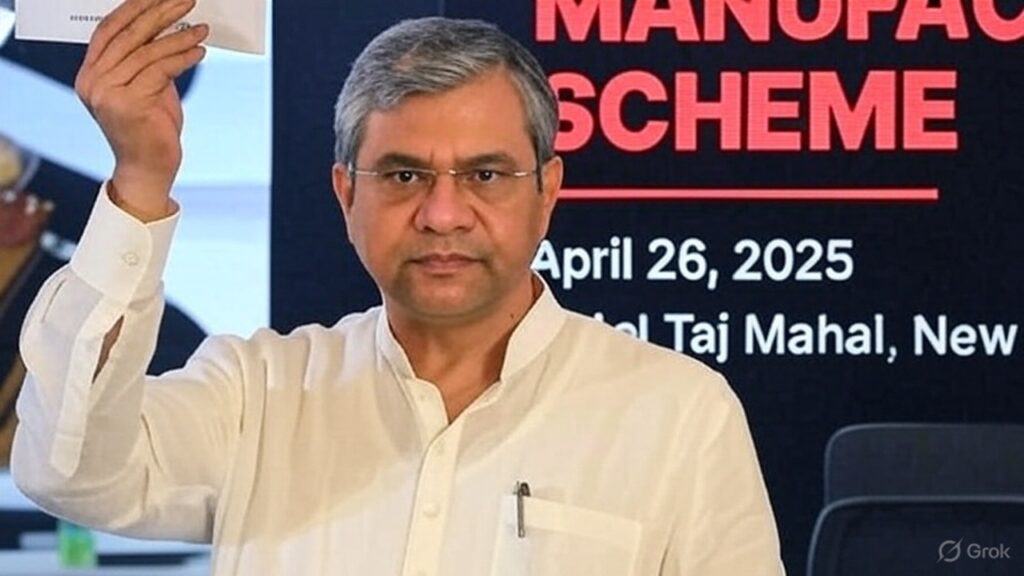Indian Government Approves Caste Enumeration in Upcoming Population Census
By New Delhi Post Desk, New Delhi:
In a significant development, the Indian government, under the leadership of Prime Minister Narendra Modi, has announced that the upcoming population census will include caste enumeration, marking a pivotal shift in the country’s demographic data collection process. Union Minister for Information and Broadcasting, Ashwini Vaishnaw, made this landmark announcement on April 30, 2025, following a decision by the Cabinet Committee on Political Affairs. This move fulfills a long-standing demand from various political and social groups for comprehensive caste-based data, which has not been systematically collected at a national level since the 1931 census under British rule.
Background and Context
The decennial population census, originally scheduled for 2021, was postponed due to multiple challenges, including the COVID-19 pandemic, which disrupted logistical preparations, and technical hurdles related to updating census methodologies and digital infrastructure. The delay has sparked debates over the need for updated demographic data to inform policy decisions, especially concerning social justice, reservation policies, and targeted welfare schemes. The inclusion of caste data in the census has been a contentious issue, with proponents arguing it is essential for equitable resource allocation and addressing historical inequalities, while critics caution against potential social polarization.
Cabinet Decision and Government’s Stance
Union Minister Ashwini Vaishnaw emphasized that the decision to include caste enumeration reflects the Modi government’s commitment to transparency and inclusivity. He stated that the forthcoming census would collect caste data systematically across the country, ensuring a standardized and reliable dataset. However, Vaishnaw refrained from announcing a specific timeline for the census exercise, citing ongoing preparations to ensure its accuracy and comprehensiveness.
Vaishnaw also took a swipe at opposition-ruled states, alleging that their recent caste surveys were conducted for “political reasons” rather than genuine policy objectives. States like Bihar, Andhra Pradesh, and Karnataka have undertaken their own caste-based surveys in recent years, citing the central government’s delay in conducting the national census. These state-level exercises have fueled political debates, with opposition parties accusing the central government of reluctance to address caste-based data collection. In contrast, Vaishnaw underscored that the Modi government’s approach would be transparent and apolitical, aiming to provide a robust framework for caste enumeration that serves national interests.
Significance of Caste Enumeration
The inclusion of caste data in the census is expected to have far-reaching implications for India’s social, economic, and political landscape. Key aspects include:
- Policy Formulation: Comprehensive caste data will enable the government to design targeted welfare programs, refine reservation policies, and address disparities in education, employment, and economic opportunities. For instance, it could influence the allocation of quotas in education and government jobs for Other Backward Classes (OBCs), Scheduled Castes (SCs), and Scheduled Tribes (STs).
- Social Justice: Accurate caste data is seen as critical for addressing historical inequalities and ensuring equitable representation. Advocacy groups have long argued that without updated caste statistics, policies aimed at uplifting marginalized communities lack precision.
- Political Implications: Caste remains a significant factor in Indian politics, influencing voting patterns and coalition strategies. The availability of detailed caste data could reshape electoral dynamics, with political parties likely to leverage it for strategizing outreach to specific communities.
- Data Modernization: The inclusion of caste data aligns with the government’s push to modernize the census process, incorporating digital tools and advanced analytics to ensure accuracy and accessibility of data.
Challenges Ahead
While the announcement has been welcomed by many, implementing caste enumeration poses several challenges:
- Logistical Complexity: Enumerating caste across India’s diverse population, with thousands of castes and sub-castes, requires a robust methodology to avoid errors and disputes over classification. The government will need to standardize caste categories while respecting regional variations.
- Social Sensitivities: Caste is a sensitive issue, and data collection could exacerbate tensions or lead to demands for reclassification of certain communities under reserved categories, as seen in past agitations by groups like the Marathas and Patidars.
- Data Privacy and Misuse: Ensuring the privacy of caste-related data and preventing its misuse for divisive purposes will be critical. The government will need to establish safeguards to maintain public trust.
- Timeline Uncertainty: The absence of a confirmed start date for the census raises concerns about further delays, especially given the technical and logistical preparations required for such an extensive exercise.
Broader Context
The decision comes amid growing public and political discourse on caste-based policies, fueled by judicial rulings, such as the Supreme Court’s observations on the need for credible data to justify reservations, and demands from coalition partners within the National Democratic Alliance (NDA). For instance, allies like the Janata Dal (United) and the Lok Janshakti Party have been vocal advocates for a caste census. The Modi government’s approval of caste enumeration could also be seen as a strategic move to address these pressures while reinforcing its commitment to social justice.
Conclusion
The inclusion of caste data in the forthcoming population census, as announced by Union Minister Ashwini Vaishnaw on April 30, 2025, represents a historic step toward addressing India’s complex social realities through data-driven governance. While the decision has been hailed as a progressive move, its success will depend on meticulous planning, transparent execution, and sensitivity to social dynamics. As the government prepares for this ambitious exercise, the nation awaits clarity on the timeline and methodology, which will shape the census’s impact on India’s policy and political landscape for decades to come.


